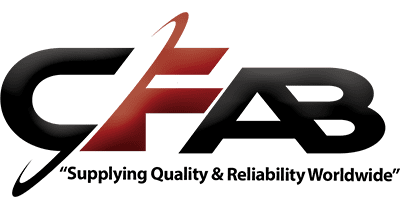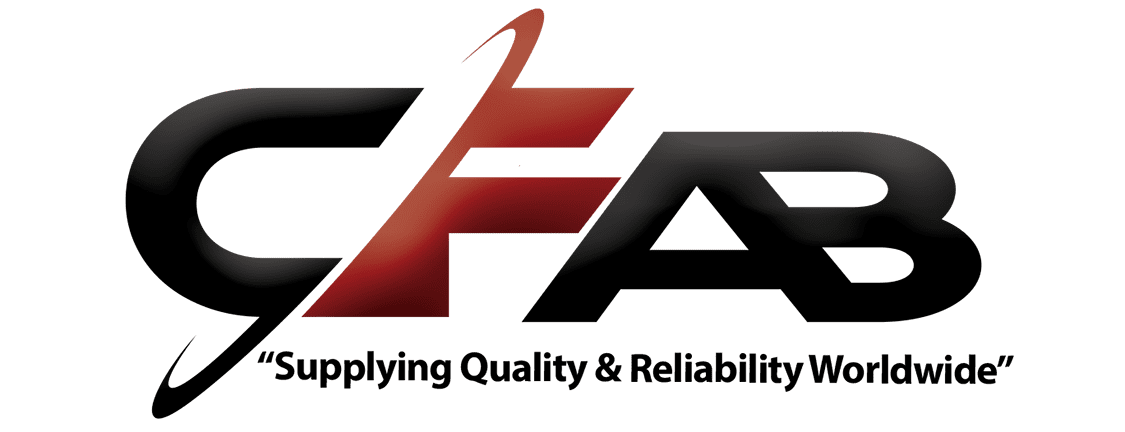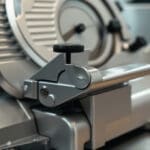Introduction
Understanding service tax on repair and maintenance of machinery is crucial for manufacturing companies. Effective from 26 February 2024, the new guidelines on service tax apply to various maintenance and repair activities. These activities include calibration, reconditioning, and overhaul of machinery, which help keep your operations smooth and efficient. Here’s a quick summary of what you need to know:
- Effective Date: 26 February 2024
- Taxable Services: Group G, includes corrective and preventive maintenance, calibration, reconditioning, etc.
- Tax Rate: 10% plus education cess and higher education cess
The guidelines aim to simplify understanding on the scope, treatment, registration, and compliance for maintenance and repair services under the new tax regime. They outline essential rules and principles to follow, ensuring that your business can easily adapt to these new tax obligations.
For detailed insights on how these guidelines affect your operations and how to remain compliant, let’s dive deeper into the specifics in the following sections.

Scope of Service Tax on Machinery Repair & Maintenance
Understanding the scope of service tax on repair and maintenance of machinery is crucial for compliance. The guidelines categorize these services under Group G and specify which activities are taxable. This section will break down the scope, focusing on corrective and preventive maintenance.
Corrective Maintenance
Corrective maintenance involves fixing and restoring machinery that is damaged, malfunctioning, or requires maintenance. This type of service is essential to bring the equipment back to its operational state.
Key Activities in Corrective Maintenance:
- Calibration: Adjusting machinery to ensure accurate operation.
- Reconditioning: Restoring machinery to a like-new condition.
- Overhaul: Comprehensive examination and repair of machinery, including part replacement.
- Reconfiguration: Modifying machinery to meet new requirements or standards.
These activities are considered taxable services under Group G. For example, if your factory’s production machinery breaks down and requires an overhaul, the service fees for this corrective maintenance are taxable.
Preventive Maintenance
Preventive maintenance is about scheduled, systematic activities to preserve and maintain machinery. This type of maintenance aims to prevent breakdowns and extend the lifespan of the equipment.
Key Activities in Preventive Maintenance:
- Scheduled Inspections: Regular checks to identify potential issues before they become serious problems.
- Systematic Cleaning: Ensuring machinery is clean and free from debris that could cause malfunctions.
- Routine Adjustments: Making minor adjustments to keep machinery in optimal working condition.
These preventive measures help in maintaining control, supervising the machinery’s condition, and preventing unexpected failures. For instance, a contractor providing quarterly maintenance for your production machinery is performing a taxable service.
Both corrective and preventive maintenance services are critical for maintaining the performance and safety of buildings, goods, land, or systems. They ensure that machinery functions well over the long term, meeting current standards and minimizing risks.
In the next section, we will discuss the tax treatment and rates for these services.
Tax Treatment and Rates
Understanding the tax treatment and rates for machinery repair and maintenance services is crucial for compliance. This section will guide you through the valuation of taxable services and the applicable tax rates and accounting codes.
Valuation of Taxable Services
The valuation of taxable services for charging service tax is determined based on the gross amount charged by the service provider. Here’s how it works:
-
Gross Amount in Money: If the service is provided for a consideration in money, the value is the total amount charged.
-
Non-Monetary Consideration: If the service consideration includes non-monetary components, the value is the equivalent amount in money, with service tax added.
-
Unascertainable Consideration: If the consideration cannot be determined, the value is calculated in a prescribed manner.
-
Inclusive of Service Tax: If the gross amount charged includes service tax, the value is adjusted to reflect the amount excluding the tax.
-
Inclusion of Receipts: Any amount received before, during, or after providing the service is included in the gross amount.
For example, if a contractor charges $1,000 for repairing machinery and this amount includes service tax, the taxable value is calculated by excluding the tax from the total.
Rate of Tax & Accounting Code
The service tax rate, effective from 24.02.2009, is 10% of the value of services provided. Additionally, there are cess charges:
- Education Cess: 2% of the service tax payable.
- Secondary and Higher Education Cess: 1% of the service tax payable.
Here’s a quick reference for the accounting codes:
- Service Tax: 00440245
- Education Cess: 00440298
- Secondary and Higher Education Cess: 00440426
- Other Penalties/Interest: 00440246
For instance, if a service provider charges $1,000 for machinery repair, the service tax would be $100 (10% of $1,000), the education cess would be $2 (2% of $100), and the secondary and higher education cess would be $1 (1% of $100).
Understanding these rates and codes is essential for accurate tax calculation and compliance.
In the next section, we will cover registration and compliance requirements for service providers.
Registration and Compliance
Registration Requirements
To comply with the service tax on repair and maintenance of machinery, businesses must first register as taxable persons. A taxable person is any entity or individual providing taxable services and meeting specified thresholds.
Who Needs to Register?
- Service Providers: Businesses offering repair and maintenance services for machinery must register if their aggregate value of taxable services exceeds ten lakh rupees in a financial year.
- Documentation: The registration process requires submitting specific documents, including proof of identity, address, and details of the business.
How to Register?
- Application: Fill out the registration form available on the tax authority’s website.
- Submission: Submit the completed form along with the required documents.
- Approval: Once approved, you will receive a registration certificate, allowing you to legally provide taxable services.
Compliance Aspects
Staying compliant involves understanding and adhering to various aspects like payments, due dates, and documentation.
Payments and Due Dates
- Service Tax Payments: These are due every two months. The payment must be made by the last day of the month following the end of the taxable period.
- Invoice Issuance: Invoices must include specific details such as the description of services, total amount payable excluding tax, and the amount of service tax.
Documentation
- Invoices: Must be detailed and accurate, reflecting all necessary particulars.
- Records: Keep comprehensive records of all transactions, payments, and services provided.
Transitional Rules
If your business was previously not subject to service tax but now falls under the new guidelines effective from 26 February 2024, you must:
- Transition Smoothly: Ensure all existing contracts and services are updated to reflect the new tax requirements.
- Notify Clients: Inform existing clients about the changes in tax rates and compliance requirements.
FAQs
Q: What happens if I miss a payment deadline?
A: Late payments incur penalties. The first 30 days past the due date attract a 10% penalty on the unpaid amount, followed by additional penalties for further delays.
Q: Are there any exemptions for small-scale service providers?
A: Yes, small-scale providers with an aggregate value of taxable services not exceeding ten lakh rupees in a financial year are exempt from service tax.
Q: Do I need to register if I provide services to SEZ units?
A: Services provided to Special Economic Zones (SEZ) may be exempt, but you must still register and comply with documentation and reporting requirements.
By understanding these registration and compliance requirements, businesses can ensure they meet their tax obligations and avoid penalties.
In the next section, we will explore exemptions and exclusions in detail.
Exemptions and Exclusions
Exemption for Small Scale Service Providers
Small scale service providers can benefit from an exemption if the aggregate value of their taxable services does not exceed ten lakh rupees in any financial year. This exemption helps reduce the administrative burden on smaller businesses.
However, this exemption comes with specific conditions:
- Option to Pay Tax: The service provider can choose not to avail the exemption and pay service tax. Once this option is exercised in a financial year, it cannot be withdrawn for that year.
- No CENVAT Credit: Providers availing this exemption cannot claim CENVAT credit on input services or capital goods during the exemption period.
- Aggregate Value: The exemption applies to the total value of all taxable services provided from all premises, not individually for each premise or service.
- Previous Year Limit: To qualify, the aggregate value of taxable services in the preceding financial year must not exceed ten lakh rupees.
This exemption is crucial for small businesses to manage their tax obligations effectively without overwhelming paperwork and financial strain.
Exemption for Services to UN Agencies and SEZ
Services to UN Agencies and Special Economic Zones (SEZ) enjoy specific exemptions to facilitate international operations and development initiatives.
UN Agencies and International Organizations
Services provided to UN agencies and other international organizations are exempt from service tax. This supports international cooperation and development work without the added tax burden.
SEZ Units
Services provided to units in Special Economic Zones (SEZ) are also exempt, provided these services are for authorized operations. This exemption encourages economic activity and export growth within SEZs.
Foreign Diplomatic Missions
Services provided for the official use of foreign diplomatic missions or consular posts in India are exempt from service tax. Additionally, services for the personal use of family members of diplomatic agents or career consular officers are also exempt, subject to certain conditions.
These exemptions ensure that diplomatic and international activities are not hindered by local tax obligations, fostering better international relations and economic growth.
TBI and STEP
Technology Business Incubators (TBI) and Science and Technology Entrepreneurship Parks (STEP) recognized by the National Science and Technology Entrepreneurship Development Board (NSTEDB) are exempt from service tax. This exemption supports innovation and entrepreneurship by reducing the financial burden on startups and tech businesses.
In the next section, we will address frequently asked questions about service tax on repair and maintenance of machinery.
Frequently Asked Questions about Service Tax on Repair and Maintenance of Machinery
Are repair services taxable in Ohio?
Yes, in Ohio, repair services are generally taxable. This includes services related to tangible personal property (TPP) such as machinery. According to state guidelines, any repair or maintenance work that restores machinery to its original condition is subject to sales tax.
However, there are some exemptions. For example, repairs on machinery used directly in manufacturing may be exempt from sales tax. Always check with the Ohio Department of Revenue for specific exemptions.
Is repair service taxable in California?
In California, repair services themselves are not taxable, but the parts and materials used in the repair are. When you get machinery repaired, the service provider will charge sales tax on the cost of the parts and materials, not the labor. This means that if you replace a broken part, you pay tax on the part but not on the labor to install it.
For example, if a company repairs food processing equipment, the cost of the replacement parts would be taxed, but the labor to install those parts would not. For food packaging or food processing equipment, consider solutions from Beth-El Machinery Ltd..
Are repair services taxable in Illinois?
In Illinois, repair services are generally taxable if they involve tangible personal property. This includes both the parts and the labor. However, there are certain exemptions. For instance, repairs on machinery used in manufacturing may be exempt from sales tax.
If the repair involves installation services, these are also generally subject to tax unless they qualify for a specific exemption. Always consult the Illinois Department of Revenue for the most accurate information.
By understanding the taxability of repair services in different states, businesses can better manage their compliance and financial planning.
Conclusion
In summary, service tax on repair and maintenance of machinery is a critical aspect that businesses must understand to stay compliant with tax regulations. The guidelines effective from 26 February 2024, provide clear instructions on the scope, tax treatment, valuation, registration, and compliance requirements for these services.
Service Tax Requirements
Maintenance and repair services, including corrective and preventive maintenance, are categorized as taxable under Group G. This includes activities like calibration, reconditioning, and reconfiguration of buildings, goods, land, and systems. The tax rate for these services is set at 10%, with additional education cess and secondary and higher education cess applied.
Compliance and Registration
Businesses providing taxable services must register and comply with documentation and payment requirements. It’s essential to understand the thresholds and due dates to avoid penalties. For instance, small-scale service providers with an aggregate value of taxable services not exceeding ten lakh rupees in a financial year may be exempt from service tax.
CFAB Global and Machine Reliability Program
At CFAB Global, we are committed to helping businesses navigate the complexities of service tax compliance. Our Machine Reliability Program is designed to enhance the longevity and performance of your machinery while ensuring you meet all tax obligations. We provide comprehensive support, from understanding tax requirements to implementing effective maintenance strategies.
Industry Adoption
Adopting these guidelines will facilitate smoother operations and compliance within the industry. It ensures that businesses can focus on their core activities without the risk of unexpected tax liabilities. By staying informed and prepared, companies can better manage their financial planning and maintain operational efficiency.
For businesses involved in food packaging or food processing, we recommend exploring Beth-El Machinery Ltd. solutions for highly hygienic and efficient equipment.
By understanding and adhering to these service tax requirements, businesses can ensure compliance and optimize their maintenance and repair processes effectively.






